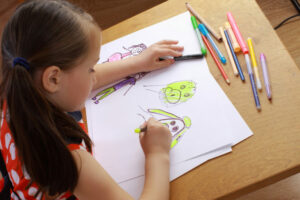Articles & Resources

Brains, Filing Cabinets and De-Cluttering
Is your brain talking to you? Or maybe it’s your child making these comments to you…. Just take a moment and scan this communication list…. My head hurts all the time… I have a permanent headache…. I just can’t turn my brain off… I can’t sleep… I am permanently exhausted… I had to take a

Strategies to Support Children – Homemade Sensory Boxes
Helping children to manage their emotions and learn to regulate them can be a daunting task. Children’s rapid brain development means that whilst they develop logic and reasoning from the age of 5, they can often be impulsive, as the frontal cortex of the brain, which controls logic develops much later. In fact, the frontal

A Deep Dive into Adolescent’s Anxiety
The NHS defines anxiety as “a feeling of unease, such as worry or fear, that can be mild or severe”, it’s prevalence in the population has seen a steady increase over recent years and in 2016 Mind.uk identified that around 6 in 100 people suffer with anxiety issues and Anxiety UK suggest that 1 in 6 teenagers will experience

Computers and Mental Health
Technology has taken the world by storm in the last ten years, and with it, brought new levels of graphics, entertainment and browsing. Long gone are the days of being impressed by a Commodore 64 or a Gameboy, as platform games and interactive social media platforms now absorb hours of our days. Whilst technology has
DISCLAIMER
The resources on this site are for individual use. They are not permitted to be mass reproduced by other organisations without a licensing fee. The content and resources on this site may not be mass reproduced in whole, or in part and are not for re-distribution by third parties without special permission from the provider. No use of these resources may be made for resale or any other commercial purposes without prior consent and written permission from Dandelion Training and Development. In some cases a licensing fee may apply.
